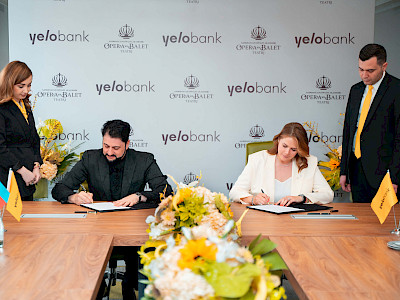
The history of the human diet has evolved into a more complex narrative over millennia. In the early days, people consumed everything raw, from tree bark to insects, until the discovery of fire. This pivotal moment sparked the evolution of world cuisines, influencing creativity and shaping us into who we are today. There are many parallels between a person's diet and their behaviour, as everything is interconnected. Recognising the depth of creativity in these connections allows it to be expressed and conveyed. Wong Kar-wai stands out as an extraordinary director for his interconnected rather than standalone films – they exhibit an almost translucent coherence. His characters seamlessly transition from one cinematic creation to another, gracefully emerging and submerging. As a viewer, one can only glimpse the undulating waves that traverse the surface of the sea of his thoughts. Deceptively light and unforced initially, yet profound and expansive upon deeper examination. With each observation, the boundaries blur, revealing circular contemplations.
I will eat canned pineapples on my birthday to embrace the emptiness of April at the bottom of the can and to affirm my yearning for Mei from the first of May.
Kar-wai, a representative of the Hong Kong New Wave (a film movement emerged in the late 1970s and lasted through the early 2000s until the present time), gained overnight fame for attempting to escape the post- production challenges of the film "Ashes of Time" (1994). Struggling through the demanding editing process, he opted for a two-month hiatus. During this break, he dedicated his time to developing and filming the cult classic "Chungking Express" (1994).
This is an exceptional film, not because it contains something revolutionary, but primarily because it marks the beginning of the director's "exploration of Hong Kong life" – a theme later revisited in another film, "Fallen Angels" (1995). Kar-wai himself considers it the "other side of the coin" of Hong Kong. Moreover, it serves as the starting point for international recognition. Quentin Tarantino played a crucial role; after encountering Wong through "Days of Being Wild," he discovered "Chungking Express" while presenting "Pulp Fiction" at a festival in Stockholm. Impressed, he aimed to popularise Wong Kar-wai in America.

The film unfolds through two interconnected stories set in "Midnight Express," a diner within Chungking Mansions. This setting serves as one of Wong Kar-wai's powerful tools to immerse the audience in the chaotic atmosphere of Hong Kong. For Wong, this chaos doesn’t solely reside within the characters' inner experiences; instead, it amplifies emotional tones, much like the role of food. In his portrayal, food appears mundane, aiming to highlight the contrast between the internal and external. Ordinary cans of pineapples mirror the depth of He Qiwu's (Takeshi Kaneshiro) feelings. Similarly, ice cream, bought by a wig-wearing woman (Brigitte Lin) for the child she abducted, portrays maternal care despite her criminal dealings. Both of the characters experience loss. The cautious lawbreaker in sunglasses and a coat, unsure when the sun will shine or the rain will fall, and the policeman buying canned goods with the same expiration date, grieving a separation from his beloved. Consequently, their paths cross in a bar, spending a night together without introducing themselves to discover each other's identities. Symbolically, he cleans her shoes while she sleeps, as if, embodying the letter of the law, he forgives his departed love – mirroring the chosen life path of the unknown wig-wearing woman, who departs by morning.
In the second storyline, we encounter Police Officer 663, who holds a toy aeroplane – a poignant symbol of lost love, only to later discover that she was a stewardess. Faye Wong, a café worker, secretly visits his home and subtly transforms his melancholic apartment. Wong Kar-wai illustrates her influence by depicting her submerging the toy aeroplane in an aquarium. This act signifies the healing power of her affection, mirrored in the growing number of fish in the aquarium, akin to the fluttery feeling of someone in love. As Faye departs, she retrieves the aeroplane from the aquarium. This scene serves as a turning point, signalling a resilient transformation of reality and the inherent fluidity of life. Elegant yet profound, it encapsulates Wong Kar-wai's storytelling finesse.

Steven Schneider – "While Wong's other films are saturated with emotional resonance, Chungking Express is filled with pure innocence and freedom – a striking triumph of style over narrative." Wong Kar-wai stands a bold figure in cinematic history, comparable to the intricate tapestry of European cuisine, as seen in series like "Hannibal" starring Mads Mikkelsen. Yet, unlike the series' creators, Wong doesn't use food in his films to display its tastiness, sophistication, cruelty, or complexity. He is an artist, and, true to the spirit of the Hong Kong New Wave, food is his universal language – a tool for character exploration, a sturdy thread intricately woven into the fabric of his visual language.
Symbols in Wong's films are unmistakable. An object is introduced, and its connection to the character clarified through voiceover, followed by reinforcing frames. Initially peculiar, this repetition serves a purpose that gradually unfolds. Wong implies that the clarity of his symbols holds nuanced layers; the story resides in a timeless realm. Understanding Wong's worldview, one must sense transformations over time. Through a wide-angle lens capturing colour and style, it unfolds as the visual manifestation of the author's soulful music.



